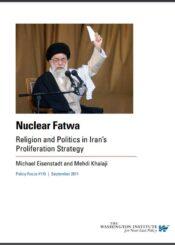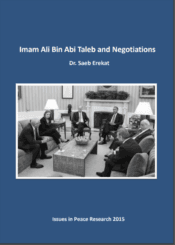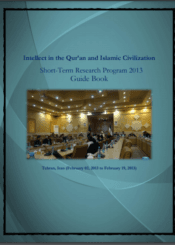Guardianship of the scholar (Wilayat-e-Faqih)
Guardianship of the scholar (Wilayat-e-Faqih)
0 Vote
390 View
The Life of Imam al-Mahdi By: Allama Baqir Sharif al-Qarashi Translation by: Sayyid Athar Husain S.H. Rizvi p. 202-204 The Awaited Imam (a.s) has appointed the great Shia jurists as his Wali and deputies just as the Purified Imams (a.s) had appointed them from their side and commanded their Shias that during the time of the Abbasides when it is not possible to contact the Imams, they must refer to the religious jurists and seek their opinion in legal matters. In a well-known tradition from Umar Ibne Hanzala it is mentioned that two Shia persons had a dispute and were going to present their case to the government magistrate. When Imam Sadiq (a.s) was asked if such a step was permitted, he replied, “One who presents his case to a tyrant and he gives a verdict it is invalid, even though it may be his lawful right. Because he has got it through the verdict of a tyrant while the Almighty Allah has commanded shunning the tyrants.” I asked, “Then what should these people doa” He replied, “See who relates our traditions and narrations to you and who considers our permitted and prohibited and who possesses knowledge and information about our commands. Be prepared to follow him. I have appointed him as authority on you. And when he commands our commands and prohibits our prohibitions and he is not obeyed, it is as if the commands of Allah were considered unimportant. And we have been denied. And one who denies us has denied Allah. Such that he shall be in the limits of having associated with Allah.”[1] In this discourse, the Holy Imam (a.s) has given a general Wilayat to the jurists and made him the authority as the ruler and point of reference for all Muslims in their social aspects. Like this tradition there is another famous narration of Ibne Khadijah that the Imam (a.s) told him: “Beware! Do not take your mutual disputes to the tyrant rulers. Rather search among yourselves and see if you can find one who is knowledgeable about our judgments and solutions to religious problems. Make him a judge among yourselves. Because I have appointed him as a judge. So take your cases to him.”[2] On the basis of this we can say that Imam Ja'far Sadiq (a.s) has appointed the just jurisprudent as the general authority and the point of reference for the Muslims. Similar to these two traditions is an epistle of His Eminence, the Master of the Age (a.s) addressed to Shaykh al-Mufid (r.a.). It is as follows: “As for the events, which will occur, turn to the narrators of our traditions, because they (the narrators) are my proof to you, while I am the proof of Allah to them...” In this tradition and others like it, His Eminence, Imam Mahdi (a.s) has appointed the jurists as his deputies and commanded the Shias to refer to them and follow their verdicts in all religious aspects of their life. However, one who is responsible for the religious leadership of Muslims during the occultation of His Eminence must possess the following qualities: 1. Adulthood 2. Sanity 3. Justice 4. Man 5. Knowledge of Jurisprudence 6. Independence (according to some narrations.[3] Responsibilities of the Religious Jurisprudent The following are the responsibilities of the religious jurisprudent appointed as the general deputy of His Eminence: A. The Islamic world and all the sects have considered (accepted) that he is one who takes care and is concerned for everything regarding the world of Islam and if there is an attack from the enemy or an infidel invades Muslim lands it is necessary that he should rise to defend them and the Shia point of reference is in Najaf Ashraf. Thus when Libya was attacked by the Italians and Muslims of Palestine were under the yoke of the Zionists (Jews) the scholars of Najaf Ashraf always supported the people of Libya and rose up to defend the Muslims. B. He must possess expertise on all the faculties of the colleges of religious sciences and he must be responsible for their expense and the budgets. C. He must convey funds to the poor and deprived people of community and fulfill their needs. These were some of the responsibilities of the religious jurisprudents appointed as point of reference by the Holy Imam (a.s) for the Muslims. [1] Wasaelush Shia, Kitabul Qaza [2] Wasaelush Shia, Kitabul Qaza [3] Urwathul Wuthqa, Vol. 1. Pg. 4 Source: maaref-foundation.com
Related Titles

The Saqifah Conspiracy

The Appropriate way to Await the Twelfth Imam

A Modern History of the Islamic World

Life as Politics: How Ordinary People Change the Middle East

Nuclear Fatwa Religion and Politics in Iran’s Proliferation Strategy

Imam Ali Bin Abi Taleb and Negotiations

Intellect in the Qur‟an and Islamic Civilization